- Home
- slideshows
- miscellaneous
- These are the everyday objects to be wary of touching as the coronavirus spreads, and how to adapt
These are the everyday objects to be wary of touching as the coronavirus spreads, and how to adapt
Cellphones

Keys

Since they are a metal surface, keys can host the coronavirus for 48 hours, according to the advice from Dr Harries.
She suggested in some cases that it could be as long as 72 hours.
The best way to keep these clean is to wipe them down after using them with an alcohol solution containing at least 70% alcohol.
ATMs
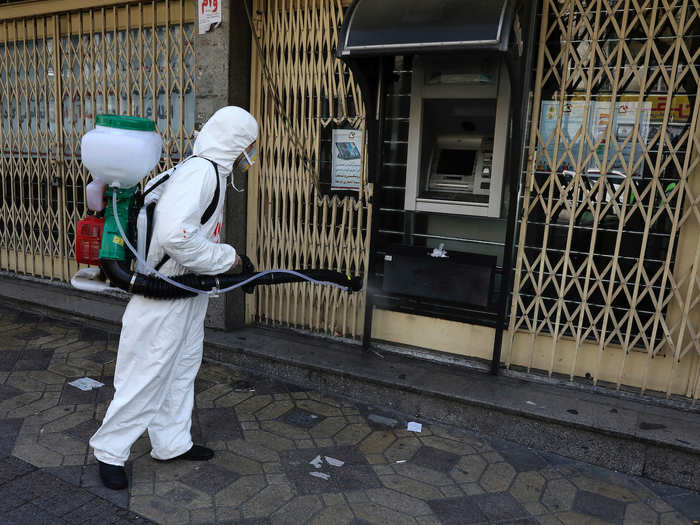
In Iran, firefighters are disinfecting ATMs to try and stop the coronavirus from spreading. But the best thing you can do is either wear gloves while using the machine, or thoroughly wash your hands afterwards.
According to Wire Cutter, being careful when interacting with ATMs or grocery store pin pads, which are touched regularly by lots of people in quick succession, is important. If you touch one of these things, wash your hands or sanitize as soon as possible.
One way to avoid contact with ATMs altogether is to move to a contactless payment system.
Money — including cash and cards
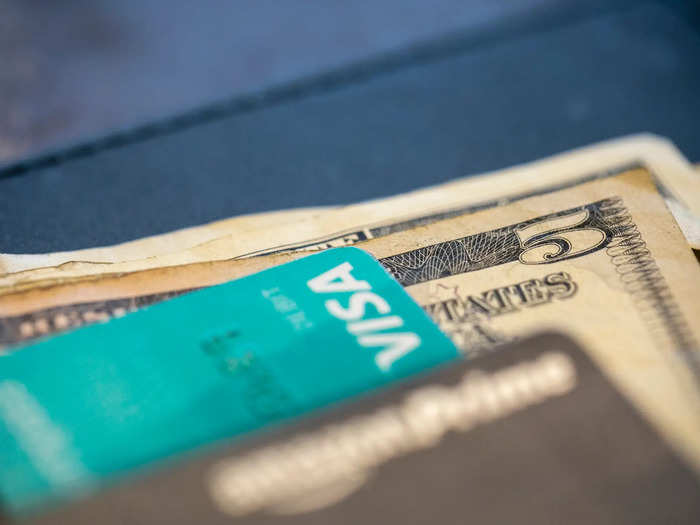
According to the Federal Reserve, the lifespan of paper cash can be anywhere from four to 23 years. In that time, they can become covered in germs.
On the plus side, because it's paper, if the coronavirus was on it, it's likely it'd only be active for 24 hours.
In China, the government is using ultraviolet light and heat to kill bacteria on cash, and banks were told cash had to be sterilized before being distributed to customers.
In early March, the World Health Organization advised people to avoid using cash, and use contactless pay systems like Apple Pay.
Infection expert Dr Christine Tait-Burkard from the University of Edinburgh told The Guardian that coins are unlikely to spread the disease.
As for credit cards, they could carry the virus if someone coughed on it when it is handed over to make a payment.
Door handles
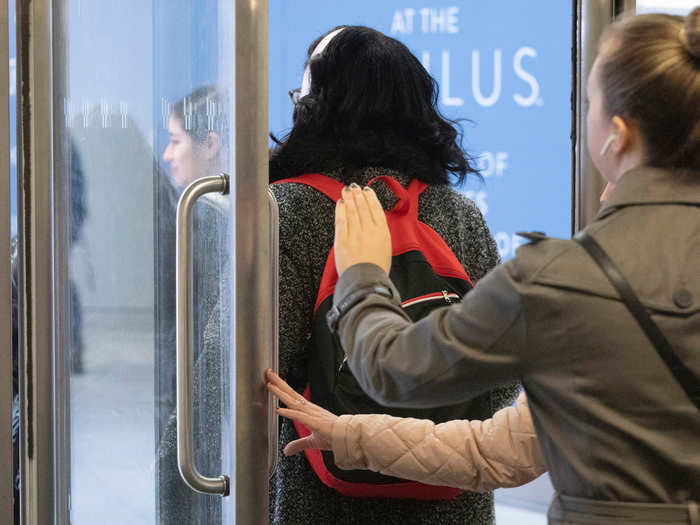
Touching door handles, and other similar hard surfaces, has a risk of transmission for up to 72 hours.
According to The Guardian, the best thing to do is be mindful of the surface you touch, and wash your hands.
Escalator handrails
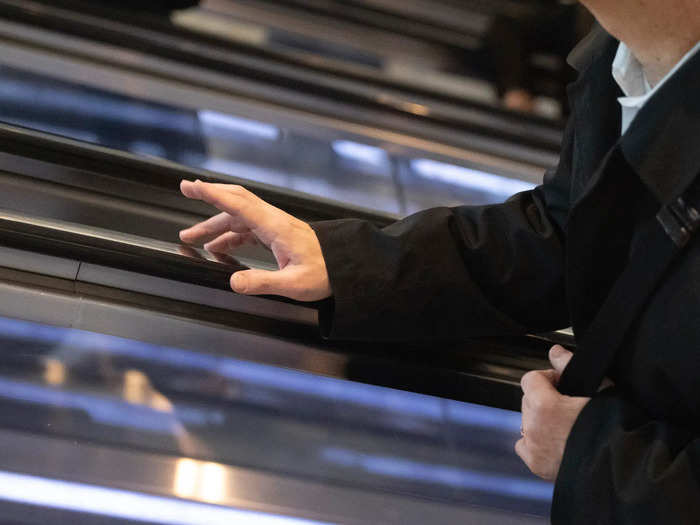
According to CBS News, escalator handrails, at least in malls, are dirty. The organization found traces of food, E. coli, urine, mucus, feces, and blood.
England's chief medical officer Professor Chris Whitty told the public not to touch their faces after touching a handrail, as there was "some risk of transmission."
Whitty told The Telegraph, "So, if you go on to the Tube and touch the rail, that's fine, but just be aware of what you do with your hands - don't touch your face, wash your hands, and then you can do what you like."
Commuting poles
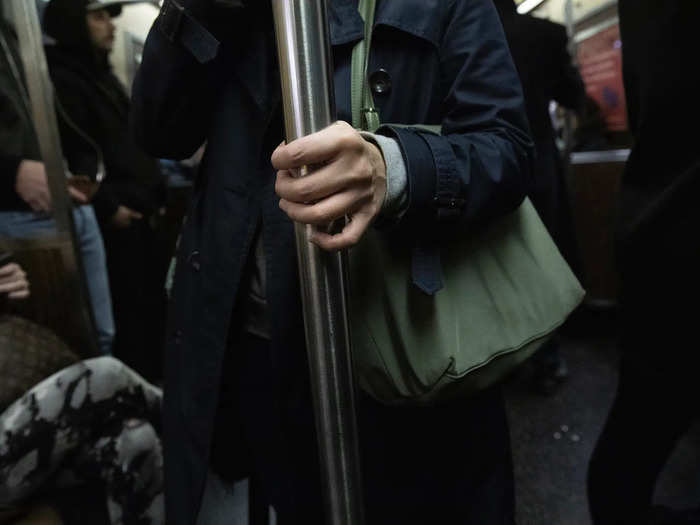
Like handrails, poles on buses and subways are hard surfaces touched by a lot of people.
As Professor Whitty said, be aware of what you do with your hands, and don't touch your face, until you've washed your hands.
Lift buttons
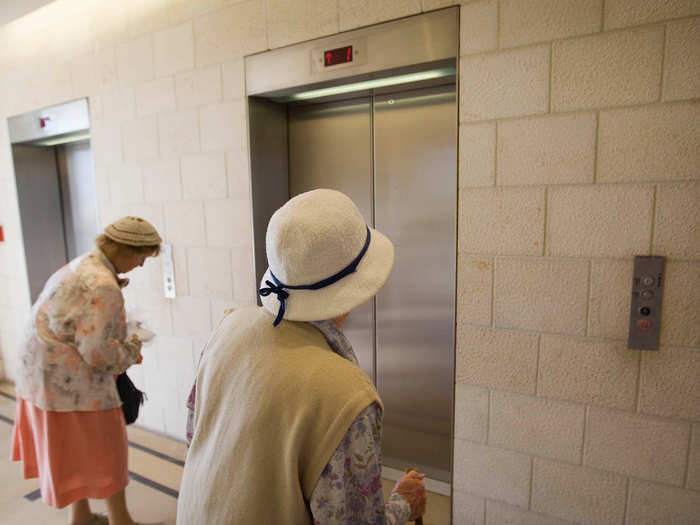
Lift buttons are a necessity, but like ATMs, a lot of people touch them throughout the day.
In China, a number of solutions have arisen to avoid touching the buttons, according to the South China Morning Post. Some people have been using lighters, pens, or toothpicks to choose a floor, while other buildings use voice-controlled directions.
But the most futuristic answer to this problem has been the implementation of holographic buttons, by at least one building in Hefei.
While the US doesn't appear to have holographic lift buttons in common use yet, tools like toothpicks could work, as long as they're thrown away afterwards.
The other alternative is to not touch your face after touching the lift button, and wash, or disinfect, your hands, as soon as you can.
Communal surfaces at work
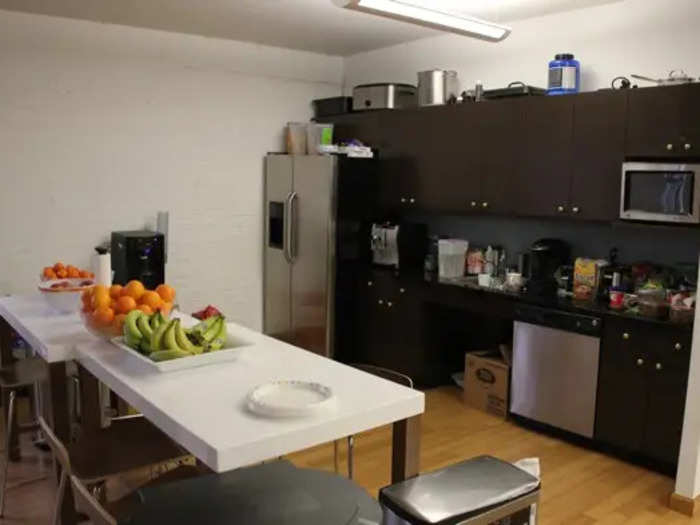
Communal surfaces, in office kitchens or work bathrooms, all come into contact with multiple people throughout the day.
According to The Guardian, after doing the tea round you should make sure to sanitize your hands.
Weights at the gym
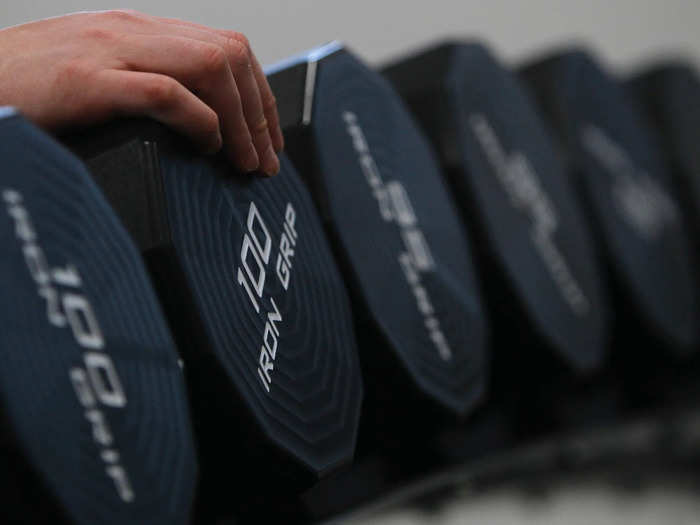
The coronavirus could spread in gyms, where people are in close quarters and share equipment.
There's no evidence that the coronavirus can spread through sweat. But ill people also cough and sneeze in the gym.
Another factor worth remembering, according to Sky News, was that gyms can be high risk due to the fact they're typically humid, which helps viruses spread.
Business Insider senior lifestyle reporter Rachel Hosie reported on a few things to keep in mind while working out.
She advised wiping down mats, weights, and machines before and after using them.
Additionally, she recommended putting a towel over a mat before lying down, washing your hands before and after a workout, and if you need to cough, try and catch it in a tissue, your elbow, or your shirt.
Finally, the best thing you can do is wash your hands, often, and thoroughly.
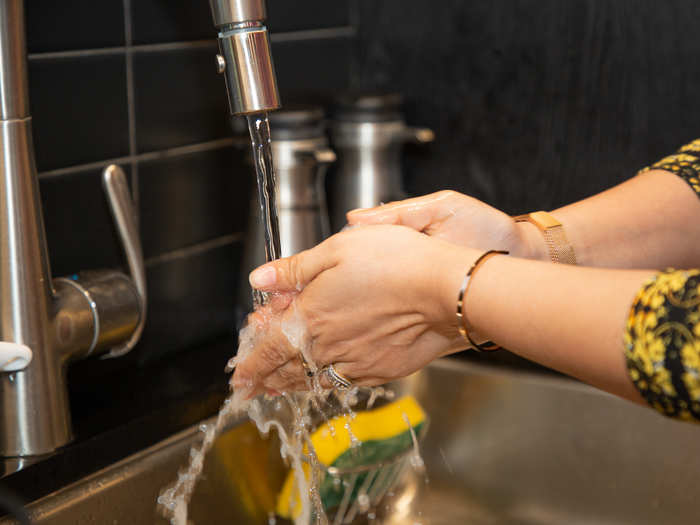
Popular Right Now
Advertisement